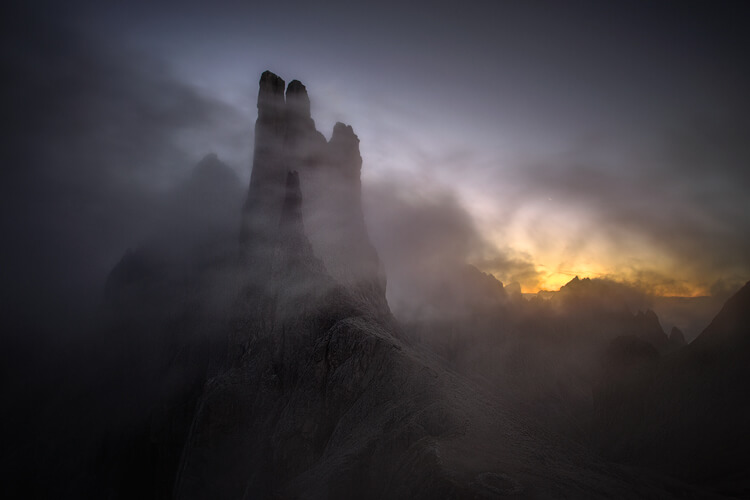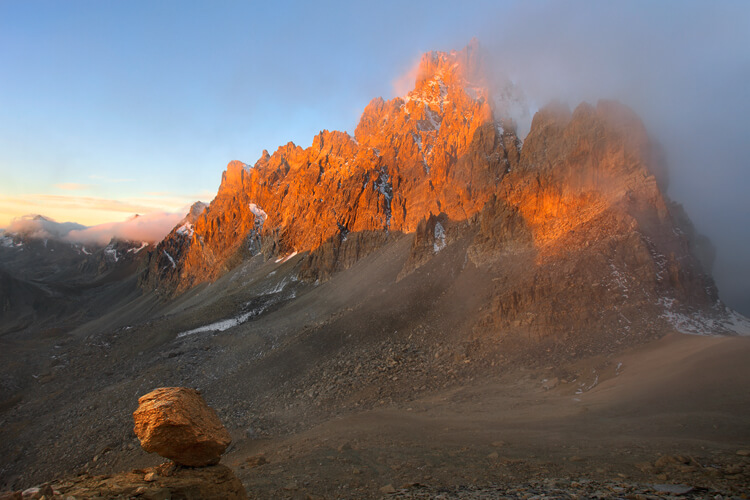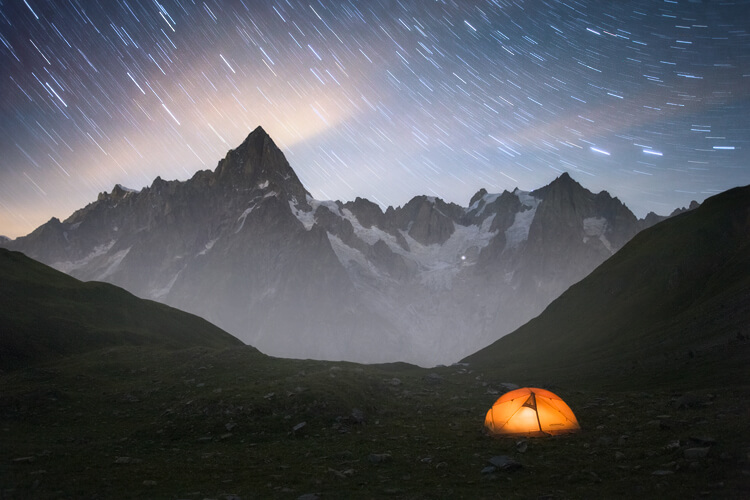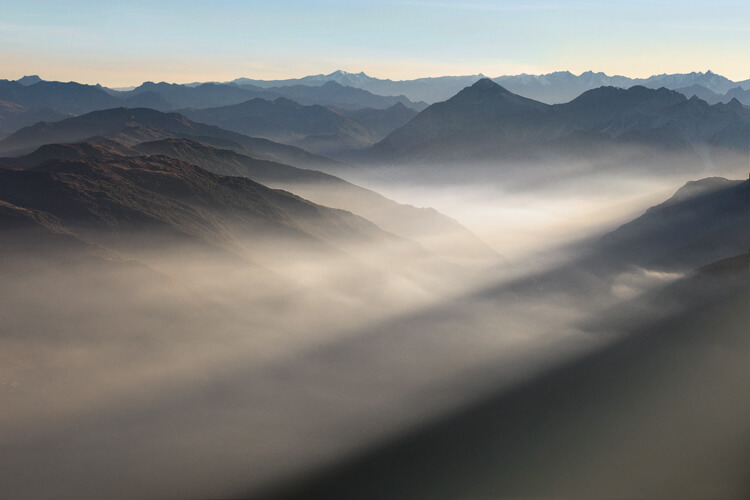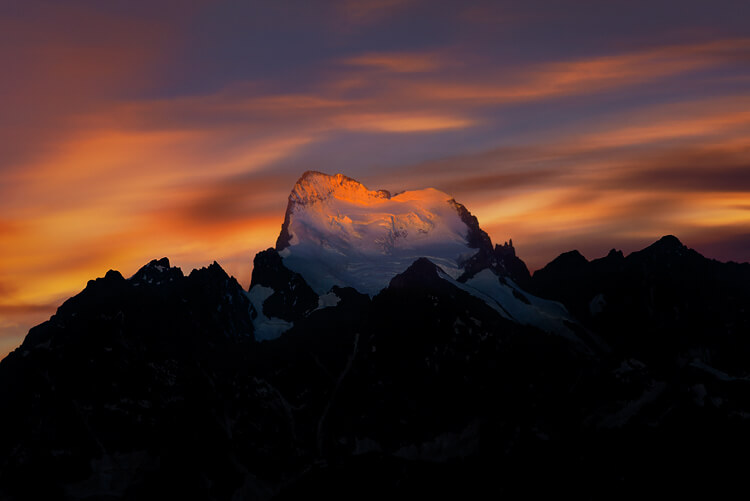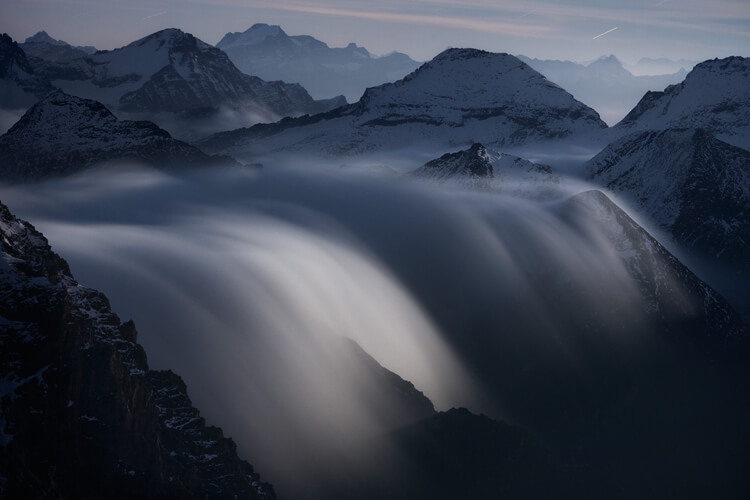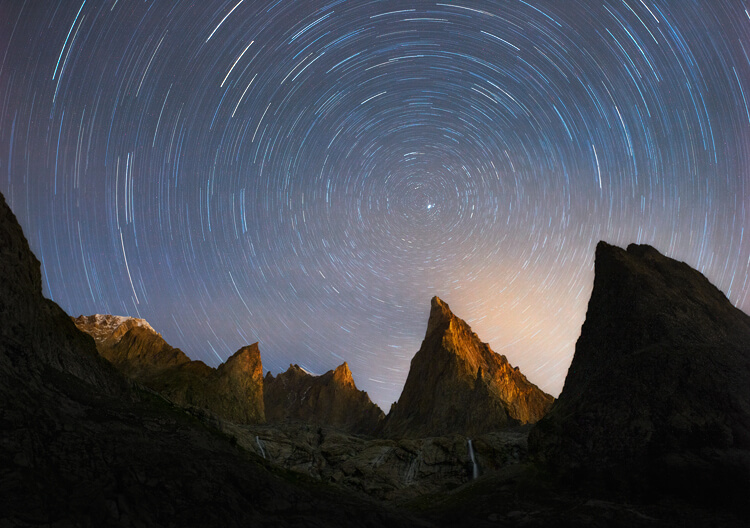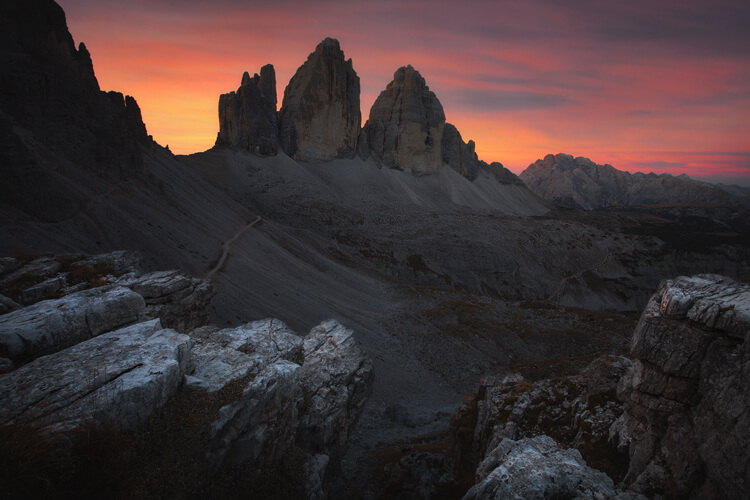Roberto Bertero says his love of photography is just a personal excuse to spend more time in the mountains, capturing landscapes that will never appear same and paying tribute to places that display a magnificence that is hard to capture fully with his photography equipment. His personal, endless journey exploring familiar and new locations, and his patience and dedication in making interesting images with his camera, has resulted in many beautiful pictures of the Alps for all to enjoy. We asked Roberto to share a little bit about his photography and love of the mountains.
Can you tell us about your background as a photographer, interests, and the equipment you use?
I am a mountain photographer and professional musician (a classical organist) based in Turin, Italy. I’ve been seriously shooting mountain images since 2007, but my love for these pristine places has always been part of me. To me, the Alps have always represented adventure, grace, freedom, and mysterious elements that inspire an existence.
Through the years I’ve always loved performing concerts at the largest cathedrals in the world, immersed in centuries of architectural history. I get the same exact feeling when I’m witnessing the immense scenarios of the Alps, where the play of light unravels the mystery (like the mystical sound of the organ in a Gothic nave) creating forms and suggestions in the millennial natural scenery of the planet.
My approach to photography has been gradual, as I think the majority of serious photographers out there build on their work over time. At a young age, I admired the great landscapes around me when I was out hiking, so I decided to start carrying around a compact camera to capture those beautiful scenes. Gradually I upgraded my equipment as my passion and skills grew, and today I shoot with a Canon 5D MKII, 2 Canon lenses (17-40L and 70-300), and a carbon fiber Benro tripod.
What experiences during your career made you a better photographer?
I’ve always studied the foundational rules of photography and carefully analyzed the work of many photographers, always trying to understand what made them unique. Over time, I developed my own ideas about how to fully respect the subject without overloading it with the typical frills of “the perfect photographer”. My aim is to produce high quality shots, hoping that the viewer wouldn’t be tempted to think, “Here’s the classic photo from just another photographer.”
Lenticular Cloud Above Furggen
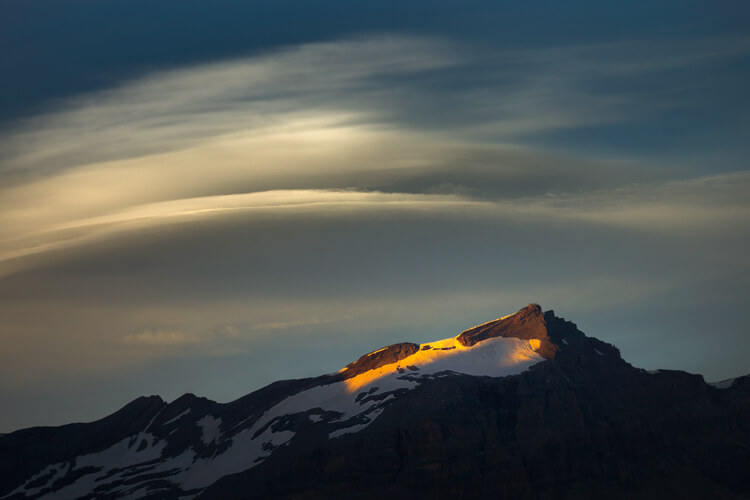
I’ve become more and more selective about my photography, using my camera only when I feel I have exactly what I’m looking for in an image. It’s often difficult to explain the reasons why a shot that looks good isn’t exactly what I’m looking for in a final version, and I need to work harder at creating an image that does feel right. I feel it’s very important to be stern in judging our own work. Criticism and selection of the images must start with the creator. Maybe that denotes some sort of maturity that I’ve gained as a photographer over the years.
Aiguilles d’Arves, Savoie, France
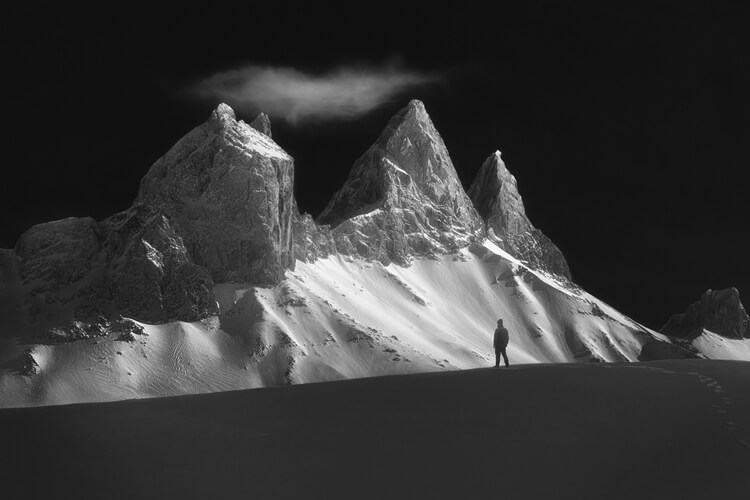
What’s your philosophy and technical approach to photography?
In my opinion, a final image comes from a desire, develops into an idea, and then converges into an active commitment in creating that picture, with deployment of resources, time, knowledge, money and, in the case of mountain photography, a lot of physical effort.
When photographing out in nature, this undertaking is on the spot. Therefore, it is essential to have a great understanding of the places that I want to capture, what beautiful scenes they potentially can offer and, because I work in direct contact with the unpredictable forces of nature, when those moments will occur. This means planning and knowing in great detail the weather, night sky, and where the light will fall on the mountains. Some of the places I venture need more than just simple preparation and a camera, but also training and equipment that’s suitable for environment I plan to photograph in.
Post-production must be never invasive. The process should fully respect the supreme art of nature and the enormous efforts made in taking the shot. Rather it should be a valuable support to compensate for the intrinsic limitations of our cameras.
Matterhorn West Face at Sunset
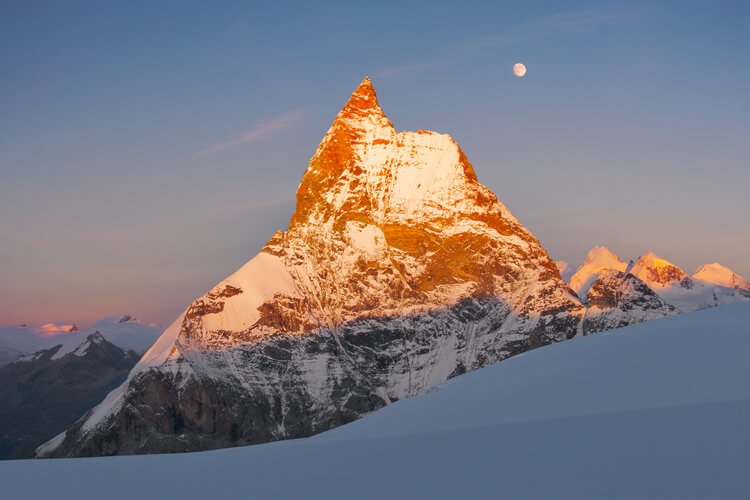
Any tips or advice for other photographers?
Find something you really love, it will be your purpose, your photographic subject. Let yourself be carried away by passion. Do not be bothered by the disappointments and difficulties you might encounter and everything will go smoothly. But of course, you need give yourself time to grow.
In the musical field, I often see people eager to get great results immediately. In most cases, it’s the persistence and dedication to the craft that makes the most difference. Becoming a good photographer is similar in that it takes a hard working approach of never giving up, understanding the steps needed to reach your goals, and being patient at developing your skills.
Check out more of Roberto’s mountain photography on his website and Facebook page.
